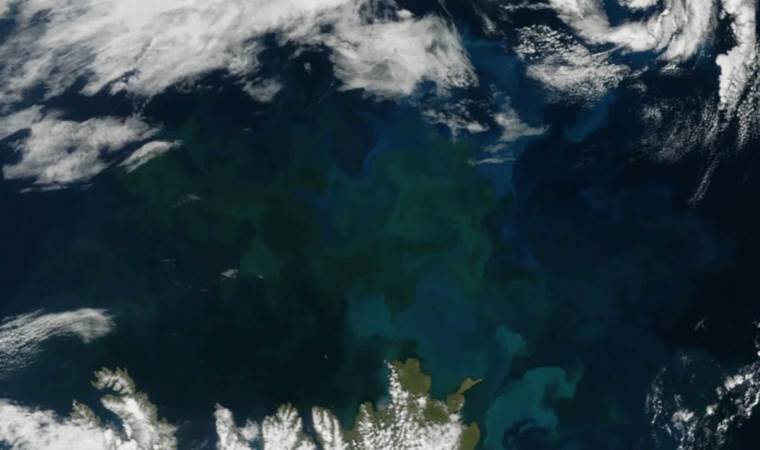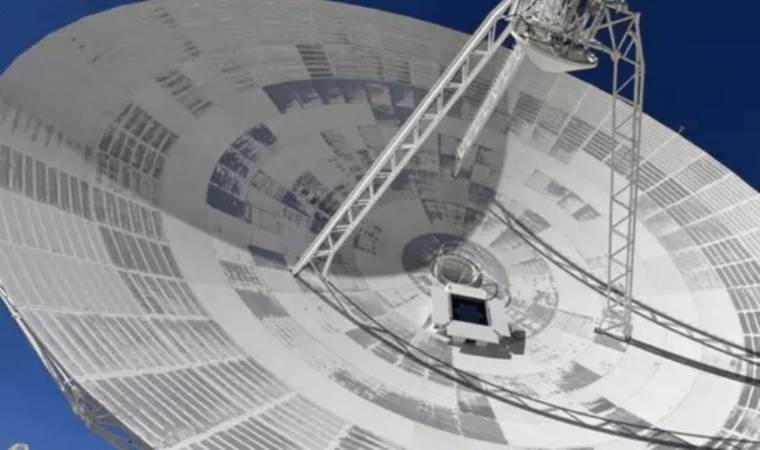NASA study: Climate change alters ocean colors
For years, Earth has been famously dubbed the Blue Planet. However, recent imaging data from NASA suggests that this may no longer hold true.

According to NASA, over the past two decades, more than half of the planet's oceans have transitioned from blue to green due to the gradual warming induced by climate change.
The regions most severely impacted are those near the equator, where Earth experiences its highest temperatures. Scientists from the National Oceanography Centre have identified this color shift as a sign of ecosystem disruption resulting from climate change.
BB Cael, a scientist at the National Oceanography Centre in Southampton and the author of a study published in Nature in 2023 emphasized that the significance lies not in the alteration of color itself but in its reflection of ecosystem changes. Cael stated, "The reason we care about this is not because we care about the color, but because the color is a reflection of the changes in the state of the ecosystem."
The study suggests that although the precise cause of the color change remains unconfirmed, it is likely attributable to plankton. Despite being at the bottom of the marine food chain, plankton plays a crucial role in oxygen production and atmospheric stability.
Plankton abundance causes light scattering in the oceans, with various organisms possessing different pigments. Monitoring color changes provides scientists with insights into shifting plankton populations globally.
Cael explained, "We do have changes in the color that are significantly emerging in almost all of the ocean of the tropics or subtropics." While these changes may not be catastrophic, they serve as additional evidence of human activity's substantial impact on the global biosphere.
While the long-term implications of ocean greening remain uncertain, NASA has initiated a new project to delve deeper into the phenomenon.
Their advanced satellite mission, named Pace (Plankton, Aerosol, Cloud, Ocean Ecosystem), launched in January 2024, aims to measure hundreds of ocean colors, providing more comprehensive ecological insights. Cael commented, "Making more meaningful inferences about what the changes actually are ecologically is definitely a big next step."
Most Read News
-
 Paris prosecutor’s cybercrime unit launches search into
Paris prosecutor’s cybercrime unit launches search into
-
 Norwegian premier rejects Trump’s claim that US gets not
Norwegian premier rejects Trump’s claim that US gets not
-
 Syria, UN sign deal to rehabilitate 5 hospitals across v
Syria, UN sign deal to rehabilitate 5 hospitals across v
-
 NATO chief says allied forces will deploy to Ukraine 'in
NATO chief says allied forces will deploy to Ukraine 'in
-
 Israeli army uproots 200 grapevines in occupied West Ban
Israeli army uproots 200 grapevines in occupied West Ban
-
 Norway's crown princess invited at least twice to Epstei
Norway's crown princess invited at least twice to Epstei
-
 Lithuanian president warns of risks in ‘overly close’ ti
Lithuanian president warns of risks in ‘overly close’ ti
-
 WHO: 5 Gaza patients evacuated through Rafah crossing on
WHO: 5 Gaza patients evacuated through Rafah crossing on
-
 Trump sees early progress on Russia-Ukraine war as US ju
Trump sees early progress on Russia-Ukraine war as US ju












